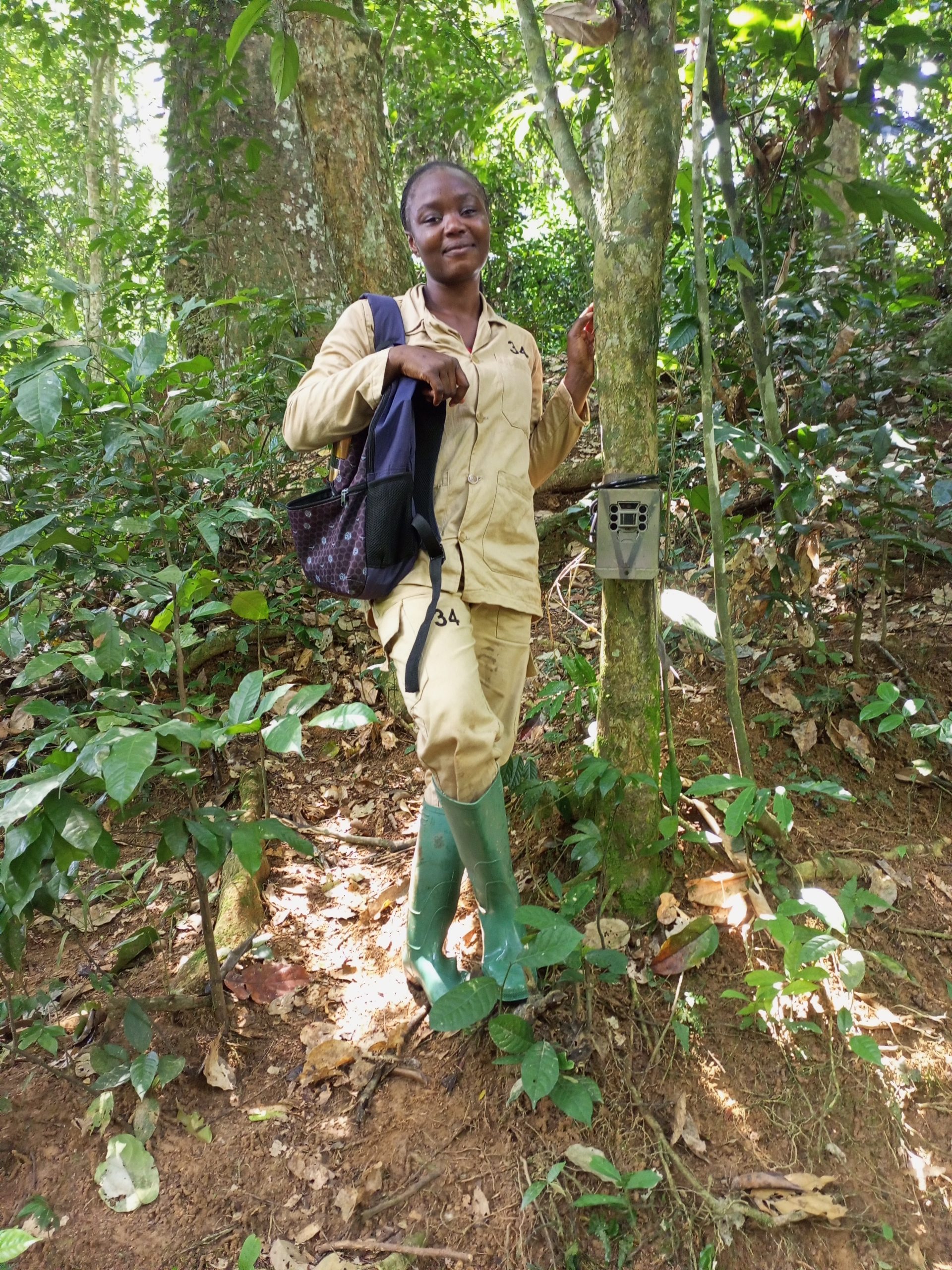A PhD student in ecology from the University of Dschang, Cameroon, with a keen interest in wildlife, her studies focus on understanding the preferred habitat of herbivorous mammals in tropical savannahs. With a Master’s degree in Ecology and Wildlife Trade, she aims to safeguard large mammals and promote sustainable natural resource management.
Recently assessed by the IUCN Red List of Threatened Species as vulnerable according to criterion C1, the Eastern Giant Eland is endemic to the Central African savannah. It is the largest herbivorous mammal in the world, belonging to the Bovidae family and a favourite prey of carnivores and humans that continues to threaten their survival. Within Benue National Park, there are factors such as poaching, climate change, gold panning, the inclusion of human populations in the park, and the grazing of domestic animals that contribute to the degradation of their habitat. Due to the lack of information on the species, this study is being set up with the aim of contributing to the conservation of the vulnerable Eastern Giant Eland through a better knowledge of the structure of their preference habitat, abundance, distribution as well as the factors that influence their behaviour in Benue National Park. To achieve this objective, two data collection methods will be used to ensure the reliability and quality of the results: quantitative surveys (in some villages surrounding the park) and linear transects (within the park).
